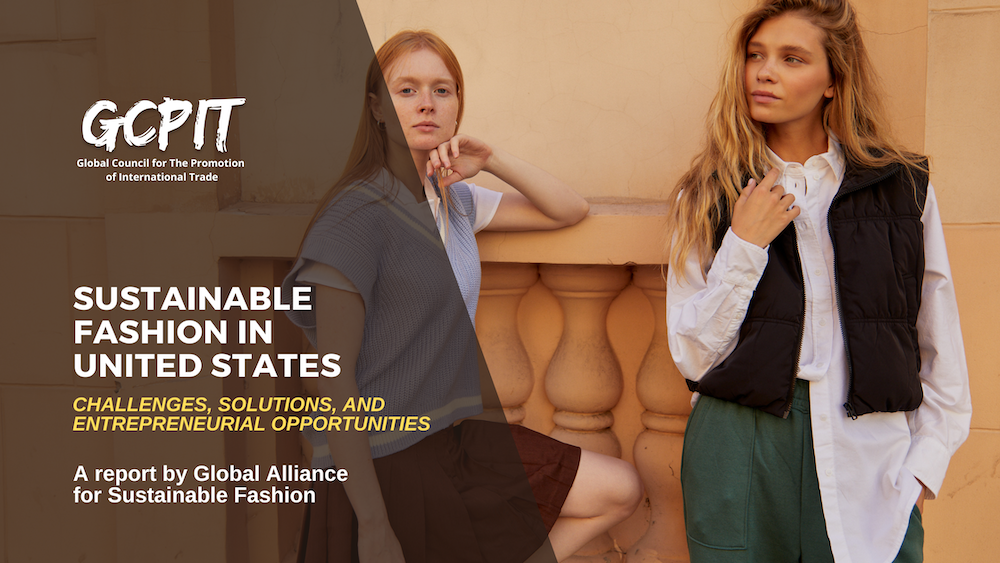Cape Town Sustainable Fashion: Eco-Friendly Trends to Watch
Cape Town Sustainable Fashion: Eco-Friendly Trends to Watch
Blog Article
Remain Ahead of the Curve by Exploring Ingenious Style Fads
In a market as dynamic as fashion, remaining ahead involves more than simply following current patterns-- it demands an expedition of development. Smart fabrics, for circumstances, are transforming garments right into practical masterpieces, while 3D printing is revolutionizing layout procedures with its customizable, waste-reducing abilities. As sustainability comes to be a keystone, advancements like environmentally friendly products and round style methods are reshaping ecological duty - Cape Town Sustainable Fashion. Moreover, the merging of innovation and style advertises a new age of customer interaction. Just how, then, can these emerging fads redefine the future of style, and what effects do they hold for brand names seeking to prosper in this developing landscape?

Accepting Smart Textiles
In the last few years, the fashion business has actually witnessed a transformative change with the combination of smart textiles, a sophisticated advancement that mixes technology with textile. This development represents not only a blend of visual appeals and performance but likewise a considerable jump in the direction of sustainability and customization in vogue. Smart textiles, likewise called e-textiles, installed innovative electronics such as sensors and conductive threads within the textile, enabling garments to engage with the user or the environment.
These textiles are created to keep an eye on physiological specifications, such as heart rate or body temperature level, supplying real-time health analytics. Past health applications, smart fabrics are likewise being utilized for flexible apparel, which can alter color or pattern in action to environmental stimulations, hence using a dynamic fashion experience.
Furthermore, the advancement of energy-harvesting fabrics that generate power from activity or sunlight is paving the way for self-sufficient wearable technology. This technology is appealing to ecologically conscious customers and designers aiming to decrease the environmental impact of fashion. As research and advancement in this field development, clever textiles are anticipated to come to be increasingly prevalent, reshaping the landscape of modern fashion with their multifunctional abilities.
The Increase of 3D Printing
Changing the production landscape, 3D printing has emerged as a game-changer in the apparel industry. This innovative modern technology has actually allowed developers to press the limits of creativity, creating complex and personalized garments that were formerly inconceivable. By leveraging digital design and additive manufacturing, 3D printing assists in the development of complicated geometries and patterns, enabling developers to explore brand-new structures and frameworks.
A noteworthy advantage of 3D printing in vogue is its capability to generate on-demand, lessening waste and decreasing stock needs. This efficiency not only enhances manufacturing processes but likewise allows for quick prototyping, enabling developers to bring their visions to life in a shorter duration. Moreover, 3D printing supports modification to a degree unmatched by conventional approaches, using customized fits and distinct styles customized to private customer preferences.
The surge of 3D printing has also equalized fashion, making it accessible to emerging designers that can now make premium pieces without substantial financial investment in conventional production framework. As modern technology proceeds to advancement, the style market is poised to harness the full capacity of 3D printing, discovering brand-new products and techniques that will most certainly redefine exactly how style is developed and produced.
Lasting Fashion Advancements
As the apparel industry grapples with the pressing demand for environmental obligation, sustainable style technologies have emerged at the leading edge of transformative modification. The expanding awareness of environmental influence has fueled a shift in the direction of even more eco-conscious practices and products. Brand names and designers are currently focusing on sustainability, integrating techniques that minimize waste and reduce carbon impacts.
One substantial advancement is the surge of round fashion, which emphasizes recycling and upcycling to expand the lifecycle of garments. This strategy not only minimizes waste however also encourages consumers weblink to embrace an extra mindful approach to apparel consumption. In addition, making use of sustainable materials, such as natural cotton, hemp, and recycled polyester, has actually acquired grip. These materials require much less water and energy throughout production, dramatically lessening environmental impact.
One more innovation hinges on the fostering of innovative dyeing strategies that utilize waterless procedures or all-natural dyes, therefore reducing the huge amounts of water and chemicals commonly used in fabric dyeing. Moreover, advancements in biotechnology have actually Homepage resulted in the creation of lab-grown leather and fabrics, offering cruelty-free and environmentally friendly options to traditional materials. Through these pioneering efforts, the garment industry is making significant strides towards an extra sustainable future.

Tech-Integrated Apparel
Tech-integrated garments represents a revolutionary combination of fashion and technology, reshaping just how individuals engage with their clothing. This cutting-edge domain is marked by the addition of smart fabrics and embedded digital elements, enhancing both capability and visual appeal. From health and fitness trackers embedded in sports apparel to warmed jackets managed using mobile phone apps, tech-integrated apparel offers customers unprecedented convenience and versatility.
Introducing brand names are driving this trend, concentrating on developing garments that react to ecological stimuli or customer commands. For example, some garments can check these guys out transform color or pattern in feedback to temperature level shifts, while others integrate biometric sensors to check health and wellness metrics like heart price or stress degrees. The seamless combination of innovation into fabrics also expands to ecological sustainability, with efforts to create self-cleaning materials or garments that adapt to weather, hence decreasing the need for numerous layers.
In addition, the development of wearable innovation is not simply restricted to garments however reaches devices like watches and eyewear, further expanding the extent of tech-integrated fashion. As the market proceeds to introduce, the capacity for modification and personalization in clothing grows, supplying customers unique, tech-enhanced fashion experiences that satisfy their individual needs and preferences.
Future of Virtual Style
In recent times, the future of online style has actually arised as a transformative force within the market, leveraging developments in digital innovation to redefine exactly how fashion is created, experienced, and consumed. By incorporating enhanced fact (AR), digital fact (VR), and 3D design devices, developers can now craft interactive and immersive experiences that go beyond typical fashion limits. Online fashion enables the creation of garments that exist solely in electronic environments, supplying unlimited opportunities for advancement without the limitations of physical manufacturing.
This digital change not only presents opportunities for creative expression yet additionally addresses sustainability worries integral in typical style techniques. Cape Town Sustainable Fashion. By removing the requirement for physical resources, digital style lowers waste and reduces carbon impacts. Moreover, the rise of digital fashion straightens with the boosting customer demand for unique and customized experiences, as online garments can be customized and tailored to specific choices easily

Conclusion
The garment industry's future hinge on the integration of sustainable practices and cutting-edge modern technologies - Cape Town Sustainable Fashion. Smart fabrics and tech-integrated garments are improving performance, while 3D printing offers possibilities for modification and waste decrease. Sustainable fashion, via round strategies and green materials, shows a dedication to environmental stewardship. Additionally, digital style is positioned to redefine consumer communications. Adapting to these patterns is vital for brand names seeking to remain affordable and pertinent in this quickly progressing landscape.
In recent years, the style market has actually observed a transformative change with the combination of smart fabrics, a sophisticated advancement that blends innovation with fabric.As the fashion market grapples with the pressing need for ecological duty, sustainable style developments have arised at the center of transformative change.In recent years, the future of online fashion has arised as a transformative force within the industry, leveraging advancements in digital innovation to redefine how style is produced, experienced, and taken in. The surge of digital style straightens with the raising consumer need for personalized and one-of-a-kind experiences, as digital garments can be customized and tailored to specific preferences with ease.
The style industry's future lies in the integration of innovative modern technologies and sustainable practices.
Report this page